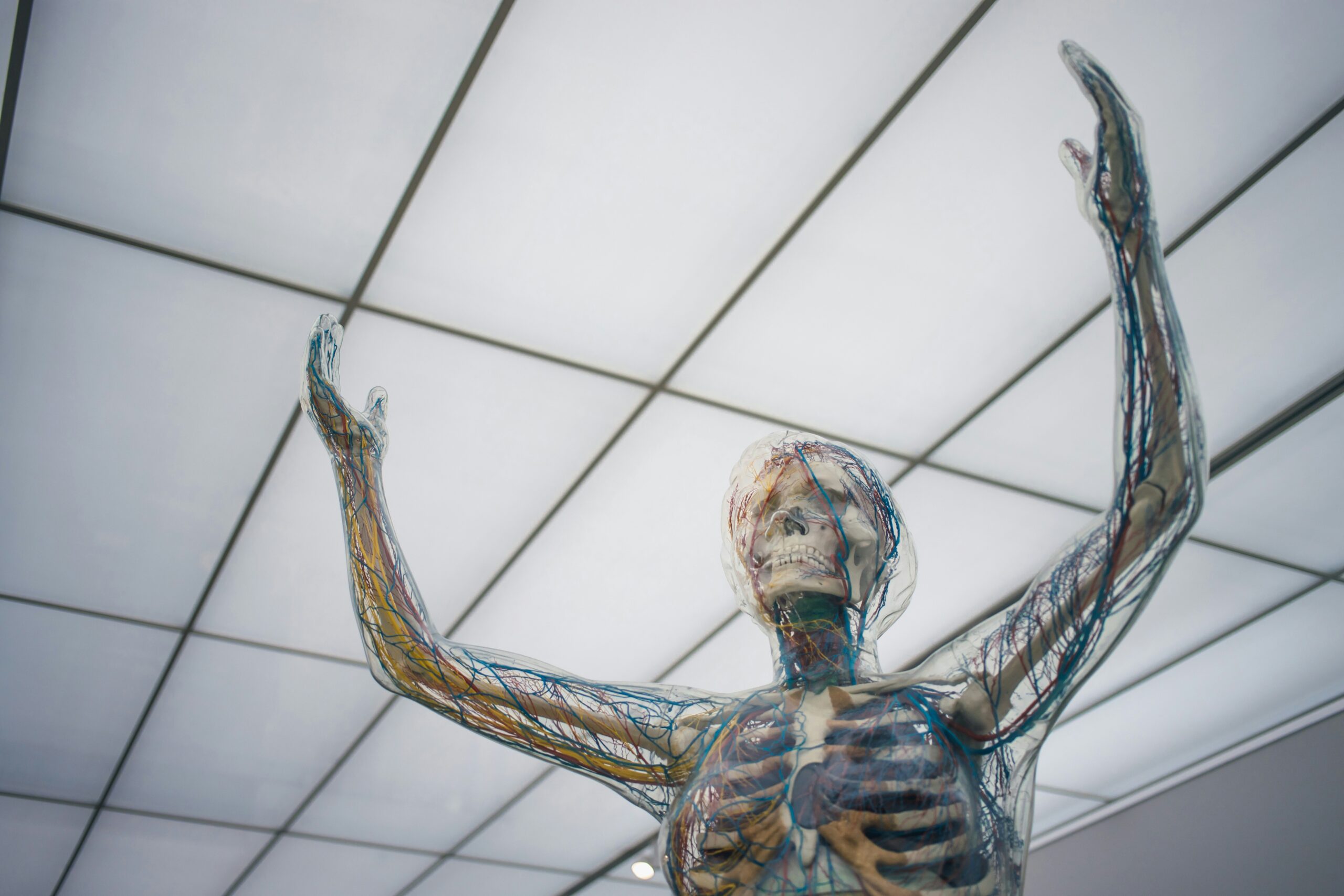Nerve damage, also known as neuropathy, could be a condition that influences the body's nervous framework. The nervous framework is a complex nerve and cell organization that transmits signals between diverse body parts.
It is essential for different capacities, including development, sensation, and automatic forms such as breathing and heart rate. When nerves are damaged, the communication between the brain and other parts of the body is disturbed. This could lead to an extent of indications and complications, affecting a person's quality of life.
Nerves are separated into three primary sorts: sensory, motor, and autonomic. Sensory nerves carry messages from the body to the brain, motor nerves send signals from the brain to the muscles, and autonomic nerves control involuntary activities such as heart rate and digestion. Harm to any of these nerves can result in particular indications and impedances.

Nerve damage is moderately common and can influence individuals of all ages. Be that as it may, it is more predominant among more seasoned grown-ups. According to the National Institute of Neurological Disorders and Stroke (NINDS), around 20 million individuals in the United States![]() have a few forms of peripheral neuropathy. This condition can happen as a standalone issue or as a result of other fundamental infections and conditions.
have a few forms of peripheral neuropathy. This condition can happen as a standalone issue or as a result of other fundamental infections and conditions.
Diabetes is one of the driving causes of nerve damage, influencing roughly 50% of diabetic patients to a few degrees. Other common causes incorporate physical wounds, contaminations, immune system illnesses, and exposure to poisons. Neuropathy can also be idiopathic, meaning its cause is obscure, which occurs in around 30% of cases.
Nerve damage can emerge from a huge number of sources, each affecting the nerves differently. Diabetes is the foremost predominant cause, driving to a particular sort called diabetic neuropathy. High blood sugar levels over time can harm nerves throughout the body but most commonly influence the legs and feet.
Physical injuries, such as mishaps or surgeries, can specifically harm nerves or compress them, leading to intense neuropathy. Repetitive stress or prolonged pressure on a nerve, such as carpal tunnel syndrome, moreover causes neuropathy.
Immune system diseases, such as lupus and rheumatoid joint pain, can cause the immune framework to assault nerve tissues, causing aggravation and harm. Diseases such as Lyme disease, shingles, and HIV can also taint nerves and lead to neuropathy.
Certain drugs and medications, strikingly chemotherapy drugs utilized in cancer treatment, have side impacts that incorporate nerve harm. Also, presenting poisonous substances like overwhelming metals and mechanical chemicals can hurt the apprehensive framework.
Hereditary disorders, such as Charcot-Marie-Tooth infection![]() , can lead to acquired forms of neuropathy. Dietary deficiencies, especially in vitamins B1, B6, B12, and E, also contribute to nerve harm.
, can lead to acquired forms of neuropathy. Dietary deficiencies, especially in vitamins B1, B6, B12, and E, also contribute to nerve harm.
The side effects of nerve damage change depending on the sort and location of the influenced nerves. Common signs incorporate deadness, shivering, and a burning or wounding torment. These sensations regularly start within the extremities, such as the hands and feet, and may advance to other zones.
Motor nerve damage can result in muscle shortcoming, jerking, and misfortune of muscle control. This may lead to trouble with developments such as strolling or holding objects. In serious cases, loss of motion can happen.
Damage to autonomic nerves influences automatic body capacities. Side effects may include intemperate sweating, warm intolerance, gastrointestinal issues, and heart rate or blood weight changes. People may, moreover, be involved in discombobulation and fainting due to a drop in blood weight.
Torment related to nerve damage can extend from gentle inconvenience to serious weakening. It is frequently depicted as a burning or shooting torment that will decline at night. A few individuals' involvements increased affectability to touch, whereas others might have a diminished capacity to sense torment or temperature.

Nerve damage, or neuropathy, can lead to a wide cluster of complications that essentially affect a person's quality of life. These complications shift depending on the sort and degree of the nerve harm and the fundamental cause. Underneath are some of the common complications related to nerve harm:
One of the foremost predominant complications of nerve harm is unremitting torment. This torment can be diligent and extreme, regularly depicted as burning, cutting, or shooting. Constant torment can weaken and influence everyday exercises, rest, and general well-being.
Harm to sensory nerves can lead to the extent of sensory impedances. These incorporate numbness, tingling, and a decreased capacity to feel torment or temperature changes. Such impedances can increase the chance of wounds, burns, and wounds because individuals may not take note of destructive boosts.
When motor nerves are influenced, muscle shortcomings, twitching, and misfortune of muscle control can happen. This may lead to troubles with coordination and development, influencing strolling, holding objects, and performing fine motor tasks. Severe cases may result in fractional or total loss of motion of the influenced muscles.
Autonomic nerve damage![]() can disturb the normal working of automatic processes. This can lead to complications such as unusual heart rate and blood weight, stomach-related issues, and bladder or bowel brokenness. Autonomic dysfunction can also cause issues with sweating and temperature regulation.
can disturb the normal working of automatic processes. This can lead to complications such as unusual heart rate and blood weight, stomach-related issues, and bladder or bowel brokenness. Autonomic dysfunction can also cause issues with sweating and temperature regulation.
People with neuropathy, especially those with decreased sensation, are at a better hazard of creating diseases. Typically, it is particularly genuine for individuals with diabetic neuropathy, where foot ulcers and diseases can end up genuine on the off chance that they are not legitimately overseen. Diminished bloodstream and resistant reactions in influenced regions can encourage complicated mending.
Misfortune sensation and muscle control can lead to balance and coordination issues, expanding the hazard of falls and related injuries. This is especially concerning for more seasoned grown-ups who may, as of now, have the next hazard of falls.
Nerve damage affecting the stomach-related framework can cause an extent of gastrointestinal issues, including clogging, loose bowels, bloating, and gastroparesis (delayed stomach emptying). These issues can be uncomfortable and influence dietary admissions and, in general, well-being.
Autonomic neuropathy can affect heart rate and blood weight regulation, leading to complications such as orthostatic hypotension (a sudden drop in blood weight upon standing), which can cause discombobulation and fainting. Cardiovascular issues can increase the hazard of more genuine heart conditions.
Torment and distress from neuropathy can meddle with rest, leading to unsettling sleep influences such as sleep deprivation. Poor sleep quality can worsen other indications and adversely influence well-being and well-being.
Serious nerve damage and its complications can lead to a loss of independence. People may require help with day-by-day activities, personal care, and versatility, affecting their capacity to live independently and perform scheduled errands.
Compelling administration of neuropathy and its complications requires a comprehensive approach that incorporates therapeutic treatment, lifestyle adjustments, and strong care. Pain administration, physical therapy, occupational treatment, and mental back are fundamental care components. Early mediation and standard checking can offer assistance to moderate complications and improve results.
Diagnosing nerve damage includes a comprehensive assessment incorporating a point-by-point therapeutic history, physical examination, and particular symptomatic tests. Doctors will ask about the onset, length, and characteristics of symptoms and any potential basic causes or contributing components.
During the physical examination, the specialist will assess muscle quality, reflexes, and sensory capacities. They might perform particular tests to assess nerve work, such as checking for changes in sensation and assessing muscle tone and reflexes.
Electrodiagnostic tests, such as electromyography (EMG) and nerve conduction studies (NCS), are commonly utilized to analyze neuropathy. EMG measures the electrical movement of muscles, whereas NCS assesses the speed and quality of signals traveling through nerves. These tests offer assistance in distinguishing the sort and extent of nerve harm.
Blood tests can detect underlying conditions such as diabetes, vitamin insufficiencies, or contaminations that will cause neuropathy. Imaging studies like MRI or CT scans may be requested to visualize any basic anomalies or nerve compression.
In a few cases, a nerve biopsy![]() may be essential, where a little test of nerve tissue is expelled and inspected beneath a magnifying lens. This strategy can give detailed information about the nature of the nerve harm.
may be essential, where a little test of nerve tissue is expelled and inspected beneath a magnifying lens. This strategy can give detailed information about the nature of the nerve harm.

The treatment of nerve damage centers on tending to the basic cause, managing indications, and advancing nerve recuperation. When a basic condition like diabetes is shown, controlling blood sugar levels is significant in preventing encouraged nerve harm. Solutions are regularly endorsed to oversee indications, particularly pain.
For pain help, specialists may endorse analgesics, nonsteroidal anti-inflammatory drugs (NSAIDs), anticonvulsants, or antidepressants. Topical medicines, such as creams containing capsaicin or lidocaine patches, can moreover be viable in easing torment.
Physical therapy plays a noteworthy part in the treatment of neuropathy, making a difference in improving quality, adjustment, and coordination. Occupational therapy can help people adjust to physical restrictions and maintain daily exercises.
In cases of compressive neuropathies like carpal tunnel syndrome, surgical mediation may well be vital to soothe weight on the influenced nerve. Procedures such as decompression surgery can lighten indications and prevent further nerve harm.
Way of life alterations are also basic. Keeping up a healthy slim down, locking a normal workout, and maintaining a strategic distance from liquor and smoking can positively affect nerve well-being. Appropriate foot care is particularly critical for diabetic neuropathy patients to anticipate complications.

The forecast for nerve harm changes broadly depending on the cause, seriousness, and opportuneness of treatment. A few shapes of neuropathy, especially those from treatable conditions like vitamin lacks or infections, may make strides with suitable treatment.
Constant conditions such as diabetic neuropathy or acquired neuropathies may require progressing administration to control indications and avoid movement. While complete recovery might not be continuously possible, but early mediation and comprehensive care can improve the quality of life.
In irreversible nerve harm, indication administration becomes the essential center. Torment management techniques, physical and occupational treatment, and steady care can assist people adapting to the condition and keeping up independence.
Avoiding nerve damage includes addressing risk factors and receiving sound lifestyle practices. For people with diabetes, strict blood sugar control is fundamental in anticipating neuropathy. Standard checking blood glucose levels, following endorsed medicines, and maintaining a balanced diet are basic.
Dodging introduction to toxins, such as mechanical chemicals and overwhelming metals, can diminish the chance of nerve harm. Utilizing defensive hardware and following security rules in workplaces where such a presentation is conceivable is significant.
Legitimate sustenance is crucial for nerve well-being. Guaranteeing satisfactory admissions of vitamins, especially B vitamins![]() , can avoid insufficiencies that lead to neuropathy. Supplements may be vital for people with dietary limitations or retention issues.
, can avoid insufficiencies that lead to neuropathy. Supplements may be vital for people with dietary limitations or retention issues.